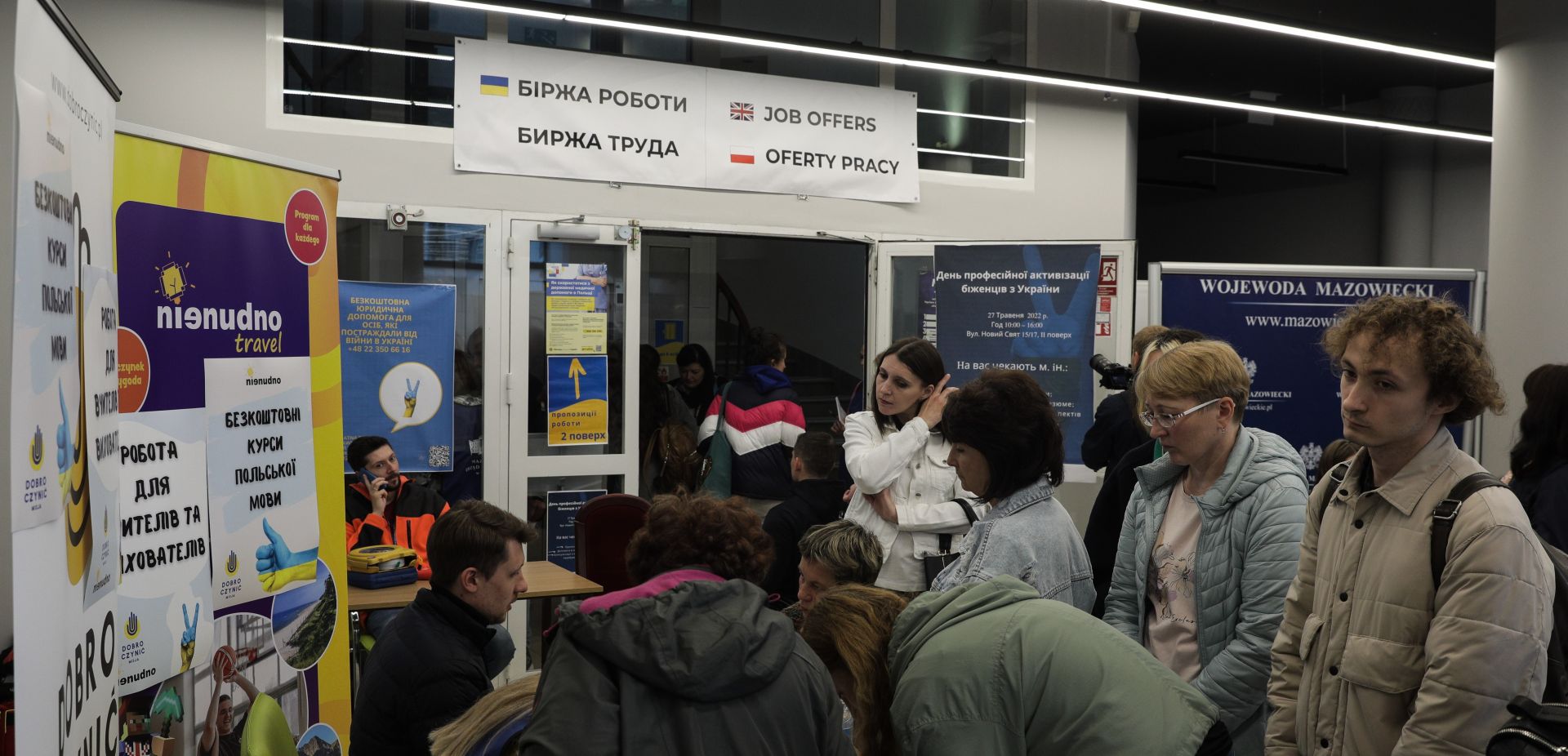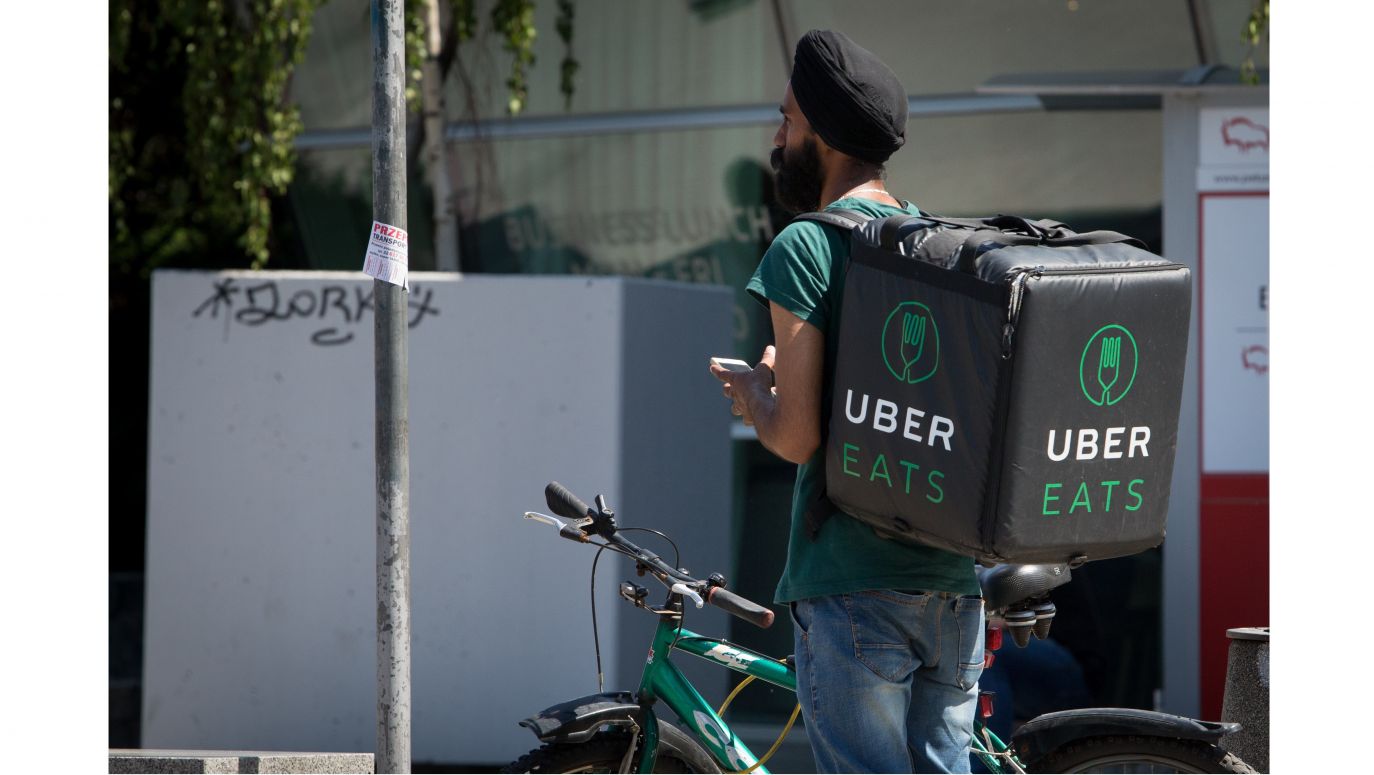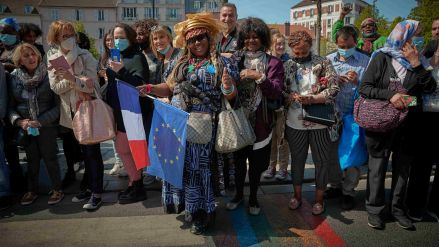"This is frightening! Already the barrier that has been built on the Polish-Belarusian border is completely pointless. If it w. as supposed to stop migration, it has not stopped it these are the words of MEP Janina Ochojska in response to the announcement of the creation of a network of entanglements on the Polish-Russian border. In turn, MP Franek Sterczewski does not rule out going to the Kaliningrad region should migrants appear there. And Anna Blaszczak-Banasiak, head of Amnesty International Poland, makes it clear that Poles divide refugees by skin colour: the lighter ones are accepted more readily, the darker ones are despised. She adds that those from the Belarusian border are only looking for a better life.
Meanwhile, around half a million economic migrants from more than 120 countries around the world find a "better life" in our country every year - legally. This includes countries as far away as Rwanda, Bangladesh and the Philippines. In the first six months of this year alone, with the consent of the Polish Government, 16 thousand Indians, almost as many Uzbeks and 500 Cubans, Moroccans, Nigerians and Ugandans came to work in Poland.
The owners of employment agencies interviewed by us unanimously claim that Poland, compared to the entire European Union, is a kind of Eldorado when it comes to granting employment permits. What is more, successive amendments to the Act on foreigners, which have been introduced for years, facilitate access to our labour market.
"Citizens of non-EU countries, unless they are engaged in specialised professions, have practically no chance of obtaining a legal work visa from Germany", says Bartosz Cebula, owner of Work Partner Service.
 SIGN UP TO OUR PAGE
SIGN UP TO OUR PAGE

If we do not want to believe the figures of the Ministry of Labour and Social Policy and the Central Statistical Office ( GUS), then let us refer to Eurostat data. In 2021, the number of so-called first residence permits in EU countries issued to non-EU citizens was almost 3 million. Every third such person received a permit in Poland, the lion's share of which concerned an employment permit.
Many unanswered questions
How is it that some Indians or Nepalese have been risking their lives and the lives of their children for a year, trudging through the Bialowieza swamps, while their neighbours legally disembark at Okęcie and just as legally go to work at six in the morning?
How is it that one Nepalese necessarily finds a 'better life' in Berlin, while his rural neighbour finds that life in Lomza?
How is it that this Nepalese, who has managed to get across our green border and has been accommodated in a refugee centre (or a flat rented by some foundation), flees to Germany the next day, while the Nepalese, who has been working here legally for years (often on the national minimum), is granted permanent residence or citizenship and does not seek illegal work in Germany, but stays in Poland?
And - finally - how is it possible that citizens from the poorest third world countries, where a day's wage is the equivalent of two dollars, do not like the 'better life' in Poland, while we have become a second home for several million refugees from the much richer Ukraine? After all, anyone granted a residence permit in Poland could today legally enter any EU country.
A rod, not a fish, stupid!
A family of 10 from Kabul had to flee Taliban-captured Afghanistan as quickly as possible. The father was a soldier working closely with the US army. The terrified Afghans without possessions ended up in Poland, specifically at the Lena Grochowska Foundation.
"They knew they would never return to their family home. They intensively started to learn the Polish language. At that time we employed them in our financial group (Lena Grochowska's husband owns, among other things, the Arche hotel chain) in the lowest positions where language was not required," says Aneta Żochowska, the foundation's director. "They started with the proverbial dishwasher and menial jobs in the hotel. After six months of self-denial, they left our walls and opened their own kebab restaurant. The whole family still lives near Warsaw today".

 SIGN UP TO OUR PAGE
SIGN UP TO OUR PAGE
 If we do not want to believe the figures of the Ministry of Labour and Social Policy and the Central Statistical Office ( GUS), then let us refer to Eurostat data. In 2021, the number of so-called first residence permits in EU countries issued to non-EU citizens was almost 3 million. Every third such person received a permit in Poland, the lion's share of which concerned an employment permit.
If we do not want to believe the figures of the Ministry of Labour and Social Policy and the Central Statistical Office ( GUS), then let us refer to Eurostat data. In 2021, the number of so-called first residence permits in EU countries issued to non-EU citizens was almost 3 million. Every third such person received a permit in Poland, the lion's share of which concerned an employment permit. 





